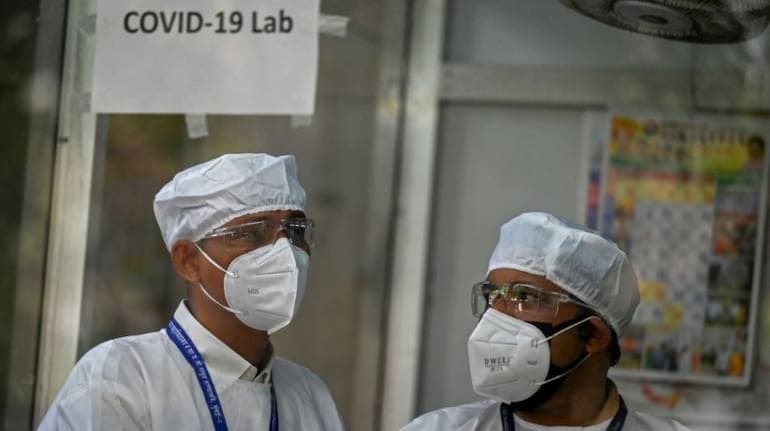



The daily Covid-19 cases in the country have seen a rise of 100 times over the past six weeks – from 100 per day to about 10,000 every day. The spike in cases has been attributed to the Omicron XBB.1.16 variant, a highly infectious version of the coronavirus.
Though there hasn’t been a proportionately higher number of deaths, hospitalisations or demand for oxygen and intensive care unit (ICU) beds, the alarming rise in infections and test positivity rates have emerged as a major concern in various parts of the country.
But does this mark the start of a fresh wave of Covid-19? Why does the virus suddenly gain momentum? What makes Omicron XBB.1.16 so efficient at transmission?
First detected in Singapore, this is one of many XBB variants currently in circulation globally. In India, the two most prevalent subvariants over the past several months have been Omicron BA.1 and BA.2. From BA.2, variants BA.2.10 and BA.2.75 evolved into XBB. While XBB.1.16 is the dominant strain, subvariants XBB.2.34 and 2.35 have also been detected here.
Also read: COVID-19 cases cross 10,000 per day but booster vaccination stays sluggish
All Omicron subvariants have the capability to escape immunity generated in humans by previous infections and vaccination even though they remain susceptible to cellular immunity. Some experts say Omicron XBB.1.16 may be the most contagious variant of the coronavirus so far.
Does it signal the beginning of a new Covid-19 wave?Infectious disease specialist Ishwar Gilada points out that over the past 15-16 months, some Omicron subvariants – mostly BA.2 – have been circulating in India and its recombinant version has gained dominance now.
“If the question is whether this is the beginning of another wave, my answer is no,” he said.
Gilada stressed that the country might be entering an endemic phase.
“When we are in an endemic phase, some kind of ripple effects are seen and therefore, we see some cases and they might settle down,” he said.
Government officials concurred with this view.
“The current spike may not be a sign of a Covid-19 wave but the disease entering an endemic phase which is marked by an infectious disease attaining a static rate in a geographic location,” a health ministry official said last week.
What other factors may be responsible for rising infections?According to clinician and medical researcher Rajeev Jayadevan, antibody levels in the community would have dropped naturally because several months have passed since the last Covid surge. The virus constantly evolves to find ways to escape the human immune response and reinfect people.
“This happens especially when one’s guard is down, no one is wearing masks, and social gatherings and festivals are going on. Since it (Omicron XBB.1.16) is not as lethal as Delta, people are largely not concerned about it,” he said.
Unfortunately, when a large number of people are simultaneously infected, the frailer among them will need hospital care, and this could overwhelm hospital systems if measures to reduce the speed of the spread aren’t taken, said Jayadevan.
The mild profile observed in the community has not been seen by doctors and nurses treating very sick patients in the ICU. These are two sides of the same coin, Jayadevan stressed.
How to protect yourself and those around you?According to Gilada, those with a runny nose, cough or early symptoms of flu-like illness should use masks. Masks should also be used by those above 60 years with comorbidities, uncontrolled diabetes, renal problems, cancer, lung infection and asthma.
As the percentage of adults who have taken a COVID-19 vaccine booster dose or precautionary dose is barely 60 percent, people can consider a third dose – mainly a heterologous one (different from what they had taken earlier) – for an additional layer of protection, he stressed.
There, however, may not be a need for travel restrictions and a mask mandate in any part of the country, Gilada said.
Discover the latest Business News, Sensex, and Nifty updates. Obtain Personal Finance insights, tax queries, and expert opinions on Moneycontrol or download the Moneycontrol App to stay updated!
Find the best of Al News in one place, specially curated for you every weekend.
Stay on top of the latest tech trends and biggest startup news.